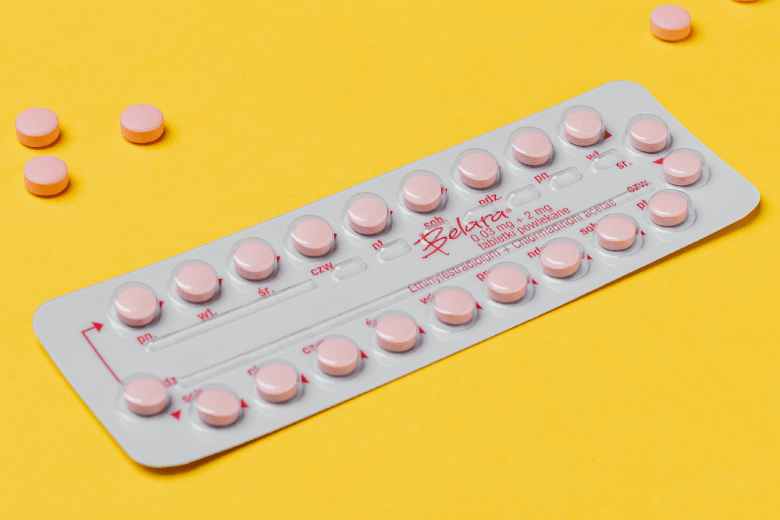New mothers undergo tremendous physical and mental changes after giving birth to their child, and it’s important that they be equipped with the correct guidance and tools to navigate these changes. For example, what precautions should a new mother take when deciding to resume sexual activity, and what contraceptive work best for breastfeeding?
In this article, we will learn about the contraceptive options available for breastfeeding mothers, how to make informed choices on birth control and what questions to ask a medical practitioner when deciding on a contraceptive option.
Do you need contraception after giving birth?
You can get pregnant again three weeks after giving birth. Even though you are breastfeeding and your menstrual cycle hasn’t resumed, there is still a high chance of falling pregnant. Therefore, it is vital to consult your medical practitioner on the contraceptive options best suitable for you.
Are all contraception options suitable for new mothers?
Not all contraceptive options are suitable for new mothers. Mothers who are breastfeeding need to avoid oestrogen-containing contraceptives due to their effect on the supply of breastmilk. The vaginal ring and the combined pill both contain oestrogen and should be avoided by new mothers for a period of 6 months, particularly if the child is being exclusively breastfed. Also, each person has a different medical history and lifestyle so their choice of contraception will vary.
The questions to ask your health provider to determine the most suitable contraceptive option
Firstly, being educated on all the contraceptive methods available and how they work is important. Secondly, it’s important to understand the effectiveness and suitability of each method. Asking your doctor about the pros and cons of every contraceptive would help in effective decision making. Also talk to your doctor about how you and your partner can both share the responsibility for contraception.
Doesn’t breastfeeding act as contraception?
Regular breastfeeding delays the return of your menstrual cycle. This involves exclusively breastfeeding your baby at an interval of 4 hours regularly. It certainly acts as a barrier to delaying your period for a minimum of six months after the baby is born. However, in some cases, your period can return after six months despite relying only on the breastfeeding method. If you and your partner decide to engage in any sexual activity during this period, the chances of getting pregnant are low, but not unlikely. Therefore, breastfeeding should not be used as an alternative to contraception.
Which contraceptive options are more suitable if you are breastfeeding?
Non-Hormonal Contraceptive Options:
Contraceptives that fall under the barrier method like condoms, cervical caps, and the diaphragm could be considered options for breastfeeding mothers. An advantage of using the barrier method (condoms) is that they also protect you from sexually transmitted diseases. It’s important to note that, during this period, the vagina of the nursing mother might be slightly dryer than usual, so using this option can be painful or irritating for some. Non-hormonal IUDs can also be used and do not affect the quality of breast milk. Tubal ligation is another form of contraception where the fallopian tubes are tied for vagina owners. Penis owners can opt to have a vasectomy where tubes that carry sperm to the testes in the penis are cut. Tubal ligation and vasectomies are both permanent forms of birth control and the couple needs to thoroughly think through the advantages and disadvantages of opting for these methods.
Hormonal Contraceptive Options:
Progesterone-only pills are suggested for breastfeeding mothers. This hormone does not harm the quality and quantity of breast milk. However, after a woman has stopped breastfeeding exclusively some medical practitioners suggest using combination pills that have both oestrogen and progesterone.The combination of these 2 hormonal pills are more effective in preventing pregnancy than singular hormonal pills, especially when the baby is no longer exclusively being breastfed. Another option is using hormonal IUDs. They release a small amount of hormones into the uterus, which does not cause harm to the breast milk.
Concluding thoughts
Deciding on the correct form of contraception as a new mother can be challenging and confusing. Therefore, with the guidance of a medical practitioner you can make an effective contraceptive choice. Most importantly, an immediate pregnancy right after child birth can be avoided.
References:
- Contraception after giving birth, https://www.betterhealth.vic.gov.au/health/healthyliving/Contraception-after-childbirth
- What are the disadvantages of using breast milk as birth control?https://www.plannedparenthood.org/learn/birth-control/breastfeeding/what-are-disadvantages-using-breastfeeding-birth-control
- Birth Control Options After pregnancy, https://www.webmd.com/sex/birth-control/birth-control-after-pregnancy
- Birth Control Options after Child Birth, long term options for new moms, https://utswmed.org/medblog/larc-birth-control-after-delivery/
- Sex and Contraception After Birth, https://www.nhs.uk/conditions/baby/support-and-services/sex-and-contraception-after-birth/
About the Author: Pragati Khabiya is an independent consultant from India, passionate about using the tools of communication, advocacy and facilitation to work for the development sector. She could only discover what she is passionate about after spending time volunteering and travelling by herself at remote organisations in India. She believes in the process of unlearning and likes to read/watch feminstic films and books.


